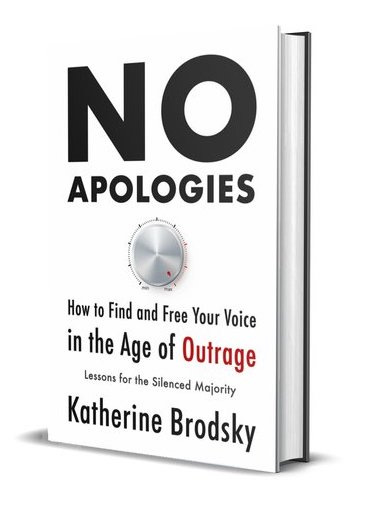Minority Report comes to a country near you
When Philip K. Dick wrote the story that became the basis for the “Minority Report” film by Steven Spielberg, one has to wonder how much of a futurist prediction that was, as opposed to just a figment of his imagination. After all, good science fiction tends to look at something one sees in the ether of reality and pushes it to the extreme to comment on where our society is headed today.
For the uninitiated, “Minority Report” is a detective thriller set in Washington, D.C., circa 2054, and stars Tom Cruise. His character heads a “Precrime” police unit that uses psychic technology to arrest and convict murderers before they even commit the crimes—resulting in, arguably, a safer but authoritarian society. Of course, as it happens, at some point, he is himself accused of a future murder—causing him to rethink that whole system.
The movie brings up some incredibly relevant moral and philosophical themes, especially as artificial intelligence is increasingly being used for all sorts of prediction models, ranging from mapping out environmental and economic outcomes, to measuring potential risk for insurance, and perhaps, eventually, even criminality.
But even before any of this becomes especially relevant in our social landscape, there are already laws being pushed that essentially serve as “Precrime” bills.
In Canada, the Online Harms Act aka Bill C-63 has been introduced in the House of Commons. While the bill has some good aspects to it, like addressing child abuse materials and some overall protections for children, it also has some extremely dangerous elements within it, especially as it pertains to freedom of speech. The bill as a whole merits its own discussion, but for now we’ll focus on the “precrime” aspect.
Essentially, the bill will allow the power to put someone on house arrest and impose bond conditions if they are feared to commit a hate crime in the future, based on the request of the attorney-general or if ordered by a judge—regardless of whether they’ve even committed any kind of crime, ever. This includes if someone is believed to be at high risk of voicing online hate.

According to the Globe and Mail, Justice Minister Arif Virani sees this as a valuable tool for restraining “the behaviour of someone with a track record of hateful behaviour who may be targeting certain people or groups.”
He stated that if “there’s a genuine fear of an escalation, then an individual or group could come forward and seek a peace bond against them and to prevent them from doing certain things.” He believes that this would help de-radicalize people who are “learning things online” and prevent violence.
This may well be well-intentioned, but, puts tremendous power in the hands of the government, and opens up additional venues for its abuse. When many of us have such vastly different definitions of “hate speech,” how will the government define it?
Currently, in the bill, hate speech is defined as “the content of a communication that expresses detestation or vilification of an individual or group of individuals on the basis of prohibited grounds of discrimination,” which include race, national or ethnic origin, color, religion, age, sex, sexual orientation, gender identity or expression, marital status, family status, genetic characteristics, disability or conviction for an offense for which a pardon has been granted where a record suspension has been ordered. You’re safe though if the speech merely “expresses disdain or dislike or it discredits, humiliates, hurts or offends.”
Under the bill, hate-crime offences will carry a maximum penalty of life imprisonment, though Virani says that this would only apply in the most serious of cases.
While we can debate how and if we should penalize “hate speech,” the most disturbing part of this bill is that one isn’t actually required to commit the offence in order to be punished for it.
Meanwhile, in the UK, the Online Safety Bill, if passed, can earn jail time of up to two years for posting social media messages that could result in “psychological harm amounting to at least serious distress.” The key word here is could, it doesn’t have to. In fact, it leaves it up to the authorities to decide whether the individual intended to cause harm. Through psychic powers presumably?
In Ireland, the proposed Criminal Justice bill (Incitement to Violence or Hatred and Hate Offences) Bill 2022 is being considered in the Seanad (it has already passed in the Dáil).
Under that bill, if it passes, a person will be deemed liable for a hate crime even if they claim they did not intend it. It will also be easier for prosecutors to secure convictions, by allowing them to rely on the use of hostile slurs, gestures or symbols. The bill defines an offense of “possession of material likely to incite violence or hatred against a person or group of persons on account of their protected characteristics with a view to the material being communicated to the public.”
This means that even if the material is on a private computer and was not published, a claim can be made that it may be there for the intention of publication. The phrasing states that if it is “reasonable to assume that the material was not intended for…personal use,” then “the person shall be presumed, until the contrary is proved, to have been in possession of the material (with a view to the material being communicated to the public).”
This is rather alarming phrasing since there’s an inherent presumption of guilt rather than innocence—burden proof is on you. Not to mention that it’s enough to have an offensive meme downloaded onto your computer for you to be subject to penalties. Don’t want to hand over access to your devices to the authorities? You can be fined €5,000 or face up to a year in jail. Draconian, to say the least. A violation of privacy, civil liberties AND speech.

Most recently, Belgium made waves after police barricaded an event venue and authorities ordered that the National Conservatism (NatCon) conference not be allowed to continue, by the mayor’s decree. Some of the speakers there include UK parliamentarian Miriam Cates, former UK Home Secretary Suella Braverman, Nigel Farage, Hungary’s Prime Minister Viktor Orban, and German Cardinal Ludwig Müller.
The Belgian court ultimately did strike down the order, but things got rather heated for a while.
Now one may or may not be aligned with some of the speakers or the topics (I’m not), but what made this concerning is that the entire basis for shutting down this conference was the reactions that “its organization might provoke among opponents” or that hateful things might be said.
In its ruling the court noted that “Article 26 of the Constitution [of Belgium] grants everyone the right to assemble peacefully,” and although the mayor has the authority to make police ordinances in case of “serious disturbance of the public peace or other unforeseen events,” in this case there was no sufficient threat of violence to justify this. The Court reasoned that “it does not seem possible to infer from the contested decision that a peace-disrupting effect is attributed to the congress itself…the threat to public order seems to be derived purely from the reactions that its organization might provoke among opponents.”
So while we’re nervously keeping an eye out on AI technologies that might serve as the "psychics” in Minority Report in the future, today we have to make sure that we are fully aware of the legislations being passed by our own governments.
Keep in mind: It may be against someone you don’t like today, but tomorrow…you may well be next.
PS. Few people are aware of the many speech-related bills that are being pushed around the world, so feel free to share this article with them. It only scratches the surface of what’s happening, but it’s a start.
Order my book, No Apologies: How to Find and Free Your Voice in the Age of Outrage―Lessons for the Silenced Majority —speaking up today is more important than ever.
NOTE TO READERS:
Thank you for keeping me company. Although I try to make many posts public and available for free access, to ensure sustainability and future growth—if you can—please consider becoming a paid subscriber. In addition to supporting my work, it will also give you access to an archive of member-only posts. And if you’re already a paid subscriber, THANK YOU!
☕️ By popular request, you can also support my work by making a one-off donation via Buy Me a Coffee.





Thanks Katherine. I had no idea about these dangerous laws. This is important to monitor.
In my own imaginary dystopian movie, the airwaves are filled chattering class agonising on the subject of how we citizens need legislation to protect us from a supposed epidemic of ‘misinformation’. The ‘Misinformation experts’ are very concerned about this. My part is a kind of keeping-his-head-down Winston Smith who can imagine nothing more chillingly Orwellian than the concept of a misinformation expert. https://grahamcunningham.substack.com/p/take-me-to-your-experts
No wait... it's not my imagination....it's really happening.